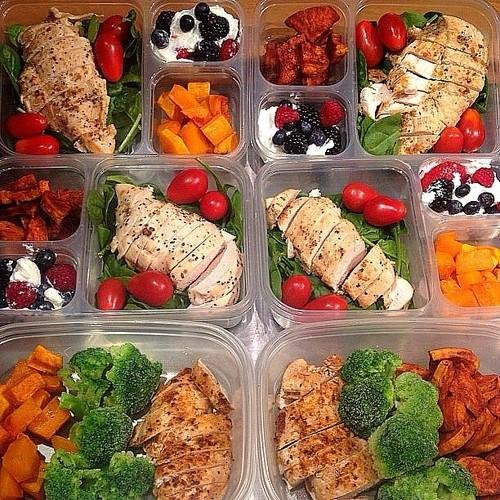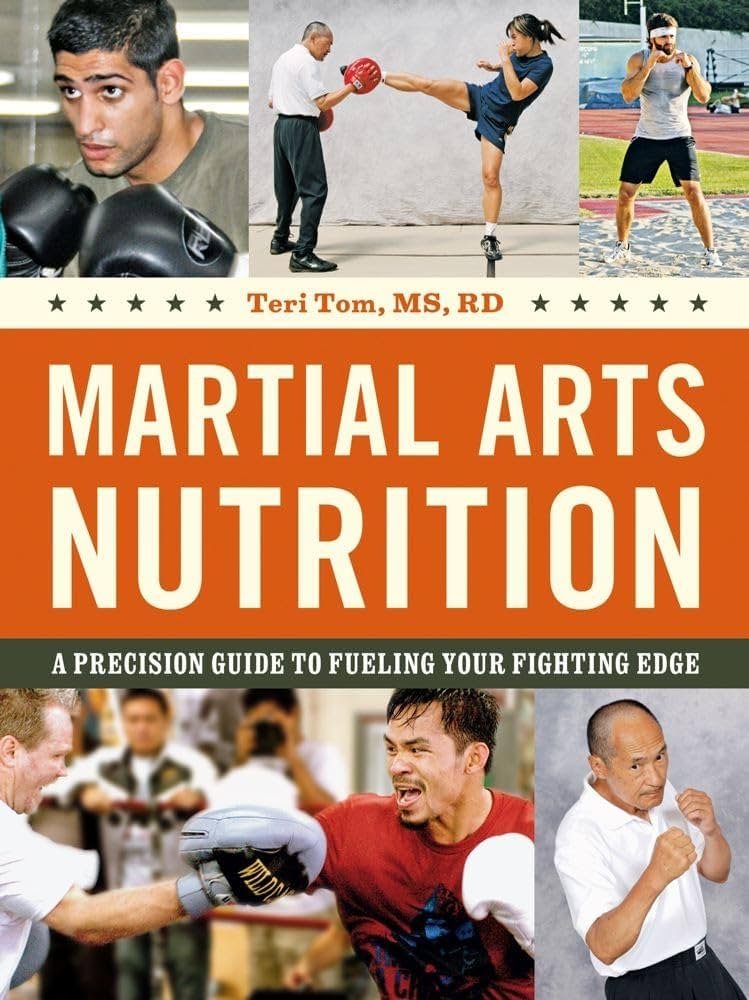In this article, you will discover the ultimate guide to nutrition for MMA fighters. Whether you’re a seasoned fighter or just starting out, fueling your body properly is crucial for reaching peak performance and maintaining overall health. We will explore the importance of macronutrients, the power of hydration, and the role of supplements in optimizing your training and recovery. Get ready to elevate your nutrition game and take your fighting skills to the next level!

Macronutrients
Protein
Protein is an essential macronutrient for MMA fighters, as it plays a crucial role in muscle repair and growth. Consuming enough protein is important for maintaining and building muscle mass, which is crucial for strength, power, and endurance. Good sources of protein include lean meats, poultry, fish, eggs, dairy products, and plant-based sources such as legumes, nuts, and seeds. Aim to include protein in every meal and snack to ensure you are meeting your needs.
Carbohydrates
Carbohydrates are the primary source of fuel for athletes, including MMA fighters. They provide the energy necessary for intense training sessions and fights. Complex carbohydrates, such as whole grains, fruits, and vegetables, should make up the majority of your carbohydrate intake. These sources provide a steady release of energy and are rich in important micronutrients, such as vitamins, minerals, and fiber. It is important to fuel your body with carbohydrates before, during, and after training to optimize performance and aid in recovery.
Fats
Although often misunderstood, dietary fats are an essential component of a nutrition plan for MMA fighters. Fats provide energy, support hormonal balance, help absorb certain vitamins, and aid in the production of important compounds in the body. Focus on consuming healthy fats from sources such as avocados, nuts, seeds, olive oil, fatty fish, and coconut oil. Balancing the intake of healthy fats will also help in maintaining a healthy weight and promoting overall well-being.
Micronutrients
Vitamins
Vitamins are essential for optimal health and performance. They play various roles in the body, including supporting the immune system, aiding in energy metabolism, and promoting recovery. It is important to consume a variety of fruits, vegetables, whole grains, and lean proteins to ensure an adequate intake of vitamins. Some key vitamins for MMA fighters include vitamin D, vitamin C, B vitamins, and vitamin E. Consider consulting with a registered dietitian to assess your specific vitamin needs and determine if supplementation is necessary.
Minerals
Minerals are important for maintaining proper hydration, muscle function, and overall health. Key minerals to focus on as an MMA fighter include calcium, iron, potassium, and magnesium. Calcium is vital for bone health and muscle function, while iron is necessary for red blood cell production and oxygen transport. Potassium and magnesium help regulate muscle contractions and promote proper hydration. To ensure an adequate intake of minerals, include a variety of nutrient-dense foods, such as leafy greens, dairy products, lean meats, nuts, seeds, and whole grains.
Hydration
Importance of hydration
Staying properly hydrated is essential for performance and overall health. Dehydration can lead to decreased physical and mental performance, muscle cramps, and even heat illness. As an MMA fighter, you consistently lose fluids through sweat during training and fights. It is crucial to replenish these lost fluids to maintain electrolyte balance and optimal performance.
Recommended fluid intake
The exact fluid needs vary depending on factors such as body size, activity level, and environmental conditions. As a general guideline, aim to consume at least 8-12 cups (64-96 ounces) of fluids daily. This can include water, herbal tea, natural fruit juices, and electrolyte-rich drinks. It is important to listen to your body’s thirst cues and drink fluids throughout the day, not just during training sessions.
Hydration strategies
To optimize hydration, consider the following strategies:
- Drink fluids regularly throughout the day, not just during training sessions.
- Start training adequately hydrated.
- Consume fluids with electrolytes, especially during intense training sessions or hot weather.
- Monitor urine color to assess hydration status. Pale yellow urine is a sign of proper hydration, while dark yellow or amber urine indicates dehydration.
Weight Management
Weight class considerations
In MMA, fighters are often required to compete within specific weight classes. It is important to manage your weight effectively to match the requirements of your desired weight class without sacrificing performance or endangering your health. Consultation with a sports nutritionist or registered dietitian is highly recommended to create a safe and effective weight management plan.
Healthy weight loss techniques
If weight loss is necessary, it should be approached in a gradual and sustainable manner. Crash diets or severe calorie restriction can lead to muscle loss, decreased energy levels, and impaired performance. To lose weight healthily, focus on creating a moderate calorie deficit through a combination of proper nutrition and regular physical activity. Choose nutrient-dense foods, limit processed foods, and practice portion control to support weight loss while maintaining muscle mass.
Recovery nutrition for weight gain
For fighters looking to gain weight and build muscle mass, post-workout recovery nutrition plays a crucial role. Aim to consume a combination of protein and carbohydrates within the first 30 minutes to an hour after training sessions. This will help replenish glycogen stores, support muscle repair and growth, and enhance recovery. Include lean protein sources, such as chicken, fish, or plant-based proteins, along with complex carbohydrates, such as whole grains or fruits, in your post-workout meals.

Pre-Workout Nutrition
Energy requirements
Proper fueling before a workout is important to sustain energy levels and optimize performance. MMA training sessions can be physically demanding, requiring both strength and endurance. Aim to consume a balanced meal or snack 1-3 hours before training, providing a combination of carbohydrates, protein, and healthy fats. This will help fuel your muscles and provide a steady release of energy throughout your training session.
Recommended pre-workout meals
Optimal pre-workout meals include a variety of nutrient-dense foods that are easy to digest. Examples of pre-workout meals include:
- Oatmeal topped with berries and a sprinkle of nuts or seeds
- Grilled chicken or tofu stir-fried with vegetables and brown rice
- Greek yogurt or a smoothie made with fruits, spinach, and protein powder
- Whole grain toast with almond butter and sliced banana
Supplement options
Supplements can be a useful addition to your pre-workout nutrition strategy, but they should not replace whole foods. Some commonly used supplements among MMA fighters include caffeine, creatine, beta-alanine, and branched-chain amino acids (BCAAs). However, it is important to consult with a registered dietitian or sports nutritionist before starting any supplement regimen, as individual needs and goals may differ.
Post-Workout Nutrition
Importance of post-workout nutrition
Post-workout nutrition is crucial for optimal recovery and muscle repair. After intense training sessions, your body needs the right nutrients to replenish energy stores and support the growth and repair of muscle tissues. Consuming a balanced meal or snack within the first hour after your workout is essential for maximizing these benefits.
Recovery meal composition
Aim to consume a combination of carbohydrates and protein in your post-workout meal or snack. This helps replenish glycogen stores and provides amino acids necessary for muscle repair and growth. Examples of post-workout meals include:
- Grilled chicken or fish with roasted sweet potatoes and a side of steamed vegetables
- Quinoa salad with mixed veggies, chickpeas, and a drizzle of olive oil
- Smoothie made with banana, spinach, protein powder, and almond milk
Timing of post-workout meal
It is recommended to consume a post-workout meal or snack within 30 minutes to an hour after your training session. This window of opportunity allows for optimal nutrient absorption and maximizes the benefits of post-workout nutrition. However, if a full meal is not feasible immediately after training, a protein shake or a small snack can still provide some benefits until you can have a proper meal.

Nutrition for Endurance
Energy demands of MMA
MMA fighters engage in high-intensity interval training, sparring sessions, and long-duration endurance exercises. These activities require a significant amount of energy. To support endurance, it is important to focus on consuming adequate amounts of carbohydrates. Carbohydrate loading, or increasing carbohydrate intake leading up to a fight, can help maximize glycogen stores in the muscles, providing a longer-lasting energy source.
Carbohydrate loading
Carbohydrate loading involves increasing carbohydrate intake in the days leading up to a fight or a prolonged training session. This strategy helps maximize glycogen stores, which can improve endurance and delay the onset of fatigue. Examples of carbohydrate-rich foods to include during carbohydrate loading include whole grains, fruits, vegetables, legumes, and starchy vegetables like potatoes and sweet potatoes.
Fueling during prolonged bouts
During prolonged fights or training sessions, it is important to fuel your body with readily available sources of carbohydrates to maintain energy levels. Consuming sports drinks, energy gels, or easily digestible snacks, such as bananas or energy bars, can help provide a quick source of carbohydrates and electrolytes. It is also crucial to stay hydrated by drinking fluids regularly throughout the activity.
Nutrition for Strength and Power
Muscle building and repair
Strength and power are essential for MMA fighters. To support muscle building and repair, it is important to focus on consuming adequate protein. Protein provides the building blocks necessary for muscle growth and repair. Aim to include a source of lean protein, such as chicken, turkey, fish, eggs, or plant-based proteins, in every meal and snack.
Protein requirements
The protein requirements for MMA fighters may be higher than for the average person due to the physical demands of training and muscle repair. Aim to consume approximately 1.2-2.0 grams of protein per kilogram of body weight per day. This can vary depending on individual factors such as training intensity, body composition goals, and recovery needs. Consult with a registered dietitian for personalized protein recommendations.
Importance of dietary fats
Dietary fats play a crucial role in supporting overall health and performance. They provide a concentrated source of energy and help facilitate the absorption of fat-soluble vitamins. Including healthy fats, such as avocado, nuts, seeds, olive oil, and fatty fish, in your diet can also help reduce inflammation and support joint health, which is important for MMA fighters. Aim to include a moderate amount of healthy fats in your meals and snacks.

Weight Cutting Strategies
Safe weight cutting methods
Weight cutting is a common practice in combat sports, including MMA. However, it is important to approach weight cutting safely and minimize potential health risks. Some safe weight cutting methods include:
- Gradually reducing calorie intake leading up to the weigh-in
- Increasing physical activity to burn additional calories
- Proper hydration and electrolyte balance management
- Seeking guidance from a registered dietitian or sports nutritionist
Water manipulation techniques
Water manipulation is often used as a temporary weight cutting strategy to shed excess water weight before a weigh-in. This can involve gradually reducing water intake, using diuretics, or engaging in water-loading practices followed by dehydration techniques. However, extreme water manipulation can be dangerous and should only be done under the supervision of a healthcare professional or a sports nutritionist.
Replenishing electrolytes after weigh-ins
After weighing in and rehydrating, it is crucial to replenish electrolytes that may have been lost during the weight cutting process. Electrolytes, such as sodium, potassium, and magnesium, are crucial for optimal muscle function and hydration. Consuming electrolyte-rich foods and beverages, such as sports drinks or coconut water, can help restore electrolyte balance and support recovery.
Supplements
Common supplements for MMA fighters
Supplements can be a convenient addition to a nutrition plan for MMA fighters. Some common supplements that fighters may consider include:
- Whey protein powder: Provides a convenient source of protein for muscle repair and growth.
- Branched-chain amino acids (BCAAs): Supports muscle recovery and reduces muscle soreness.
- Creatine: Enhances strength and power output.
- Fish oil: Provides omega-3 fatty acids, which help reduce inflammation and support joint health.
Performance-enhancing supplements
While some supplements may have performance-enhancing qualities, it is important to approach them with caution. Performance-enhancing supplements, such as pre-workout formulas or testosterone boosters, should only be used under the guidance of a registered dietitian or sports nutritionist. It is important to prioritize a well-balanced diet and training program before considering supplements.
Use caution with supplements
While supplements can be beneficial when used appropriately, it is important to exercise caution and educate yourself about potential risks and side effects. Some supplements may be contaminated or contain banned substances that can lead to positive drug tests, jeopardizing your career. Always choose reputable brands and consult with a healthcare professional or sports nutritionist before starting any supplement regimen.

